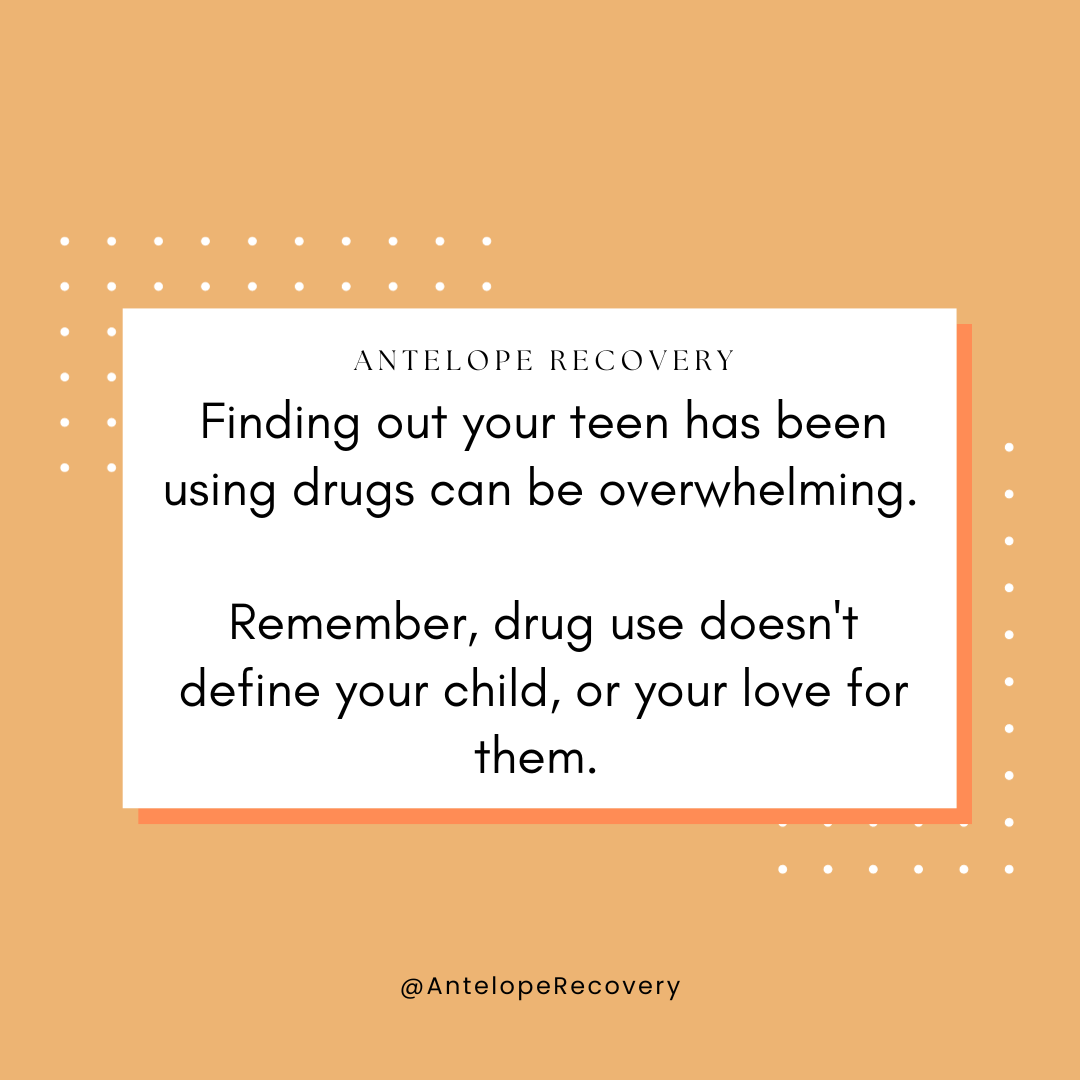Psychedelics are a class of drugs that can cause alterations in perception, mood, and thought processes. While psychedelics can have therapeutic benefits when used in a controlled and supervised setting, they can also lead to the onset of psychotic symptoms or psychosis, particularly in people who are predisposed to or have a history of psychotic disorders. While this is rare, it is something that is important to know about if your teen is using psychedelics regularly.
What is psychosis or a psychotic episode?
A psychotic episode is a period of time during which an individual experiences a break from reality, characterized by symptoms such as delusions, hallucinations, disordered thinking, and abnormal behaviors. Psychotic episodes can occur as a result of various mental health conditions, including schizophrenia, bipolar disorder, and severe depression, as well as a result of drug-induced psychosis.
During a psychotic episode, individuals may experience a wide range of symptoms, including hearing voices or seeing things that are not there, believing in things that are not true (delusions), speaking in a disorganized or incoherent manner, having difficulty concentrating or staying focused, experiencing changes in emotions or behaviors, and displaying unusual or bizarre behavior.
When can psychedelics cause psychosis?
We’re still not 100% sure what determines whether an individual will experience a psychotic episode when using psychedelics, but current research suggests that the risk of experiencing a psychotic episode after using psychedelics is higher for individuals who have a personal or family history of mental illness. Large doses or usage in an uncontrolled setting can also increase the risk of developing psychosis.
Psychosis can be scary, regardless of whether it is drug-induced or not. There are a lot of mixed reactions that a parent or family member can have. There can be…
- Shock – “I didn’t know my teen was doing this”
- Anger – “How could my teen do this!”
- Grief – “Will my teen ever be okay or get through this.”
- Blame – “Who exposed my teen to these substances?” or “Is this my fault?”
- Dissociation – “This isn’t happening. Everything is fine.”
These are normal reactions. Remember, when your teen is experiencing a psychotic episode, that this is an emergency and that your teen needs you to be calm and collected. Know that you can take frequent breaks, call on outside support and that it is essential for you to take care of your well-being so that you can show up for your child through this experience.

Signs that your teen may be experiencing a psychotic episode:
The symptoms of psychedelic-induced psychosis may include hallucinations, delusions, disorganized thinking, and abnormal behaviors. These symptoms can be temporary or may persist even after the effects of the drug have worn off. It is important to seek medical attention if you or someone you know experiences symptoms of psychosis, as prompt treatment can help manage symptoms and improve outcomes.
- Delusions: Delusions are false beliefs that are not based in reality. Your teenager may have delusions about the world around them or about their own identity.
- Hallucinations: Hallucinations are sensory experiences that are not real, such as seeing or hearing things that are not there.
- Disorganized thinking: Your teenager may have difficulty organizing their thoughts or may speak in a disorganized or nonsensical way.
- Agitation: Your teenager may be agitated, restless, or aggressive during a psychotic episode.
- Paranoia: Your teenager may have an excessive or irrational fear or mistrust of others during a psychotic episode.
As you may guess, it can be challenging to keep a teenager calm during a psychotic episode. In addition to contacting professionals for help, here are some tips that can help you manage the situation.
Tips for De-escalation
- Stay calm: It’s important to try to stay calm and not get overwhelmed, as this can help create a sense of safety and stability for your teenager.
- Use a soothing tone of voice: Using a soothing tone of voice can help your teenager feel comforted and reassured.
- Provide reassurance: Offer reassurance that you are there to help and that they are safe.
- Create a safe environment: Remove any potential dangers from the environment, such as sharp objects or medications.
- Use physical comfort: Offer physical comfort, such as a hug or holding your teenager’s hand, to help them feel more grounded and secure.
- Use physical relaxation techniques: Encourage your teenager to take slow, deep breaths or to try other relaxation techniques, such as progressive muscle relaxation or guided imagery.
- Avoid arguing: Avoid arguing or trying to convince your teenager that their delusions or hallucinations are not real, as this can increase their distress.
Even if you are able to calm your teenager down and their symptoms improve, it’s still important to consider seeking medical attention. This is because the symptoms of a psychotic episode can recur or worsen over time, and it’s important to ensure that your teenager receives the necessary treatment and support.
Recovering from a psychotic episode
The recovery process after a psychotic episode can vary depending on the individual and the severity of their symptoms. It’s important to seek medical attention and support as soon as possible to ensure that your teenager receives the necessary treatment and support.
Some teenagers may require hospitalization to stabilize their symptoms, while others may be able to recover with outpatient treatment and support. Treatment may include medications to help stabilize symptoms, as well as therapy to address any underlying mental health issues or to help process the experience.
The recovery plan after a psychotic episode may include a combination of medications and/or therapy. The specific treatment plan will depend on the individual’s needs and the severity of their symptoms.
Medications used to support someone after a psychotic episode:
- Antipsychotic medications: These medications can help stabilize symptoms such as delusions and hallucinations.
- Antidepressant medications: These medications can help improve mood and treat any underlying depression.
- Mood stabilizers: These medications can help regulate mood and reduce the risk of future mood episodes.
You can read a summary of these medications and how they work here.
Therapies that are used to support someone after a psychotic episode:
- Individual therapy: One-on-one therapy can help your teenager process their experience as well as address any underlying mental health issues.
- Group therapy: Group therapy can both provide a supportive environment for your teenager to connect with others who have had similar experiences and facilitate healing through a sense of belonging and connection.
- Family therapy: Family therapy can help improve communication and understanding within the family and provide support for everyone affected by the psychotic episode.
It’s important to note that recovery from a psychotic episode can take time and may involve ongoing treatment and support. It’s important to be patient and to encourage your teenager to follow their treatment plan and to seek support from trusted friends and family members.
Resources about psychosis
Back From the Abyss podcast episode about psychedelics and psychosis: https://chtbl.com/track/DE64EC/www.buzzsprout.com/396871/11339787-psychedelics-psychosis-and-risk-reduction.mp3
Contact Antelope Recovery
We are here to be your trusted partner in your teenager’s journey towards a healthier and brighter future. Whether you’re seeking help with medication-assisted treatment, addiction recovery, or mental health support, our comprehensive programs, including teen groups, family therapy, and individual therapy, are designed to provide the care and guidance your family needs. Don’t wait to take that crucial step towards positive change. Contact us today to explore how our services can make a meaningful difference in your teen’s life. Your family’s path to healing and hope begins with Antelope Recovery.


